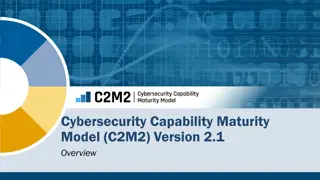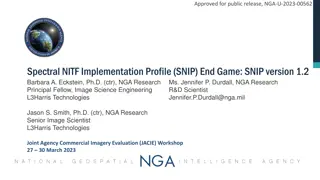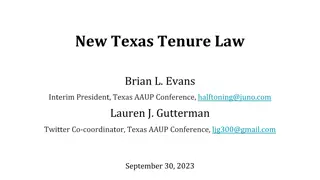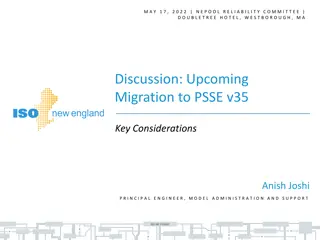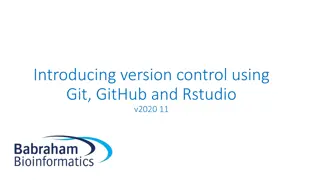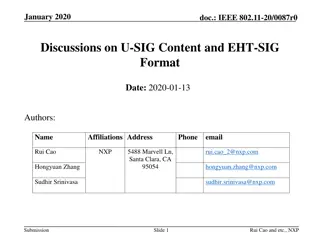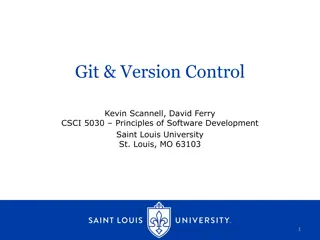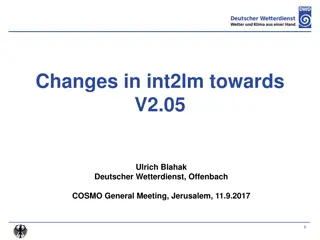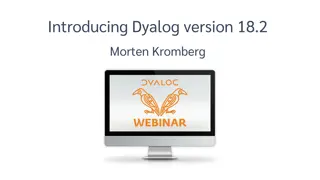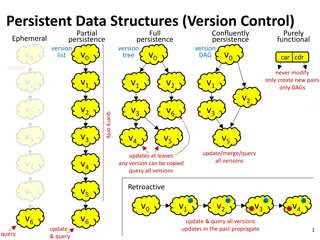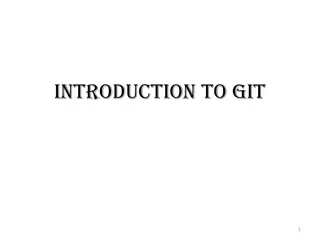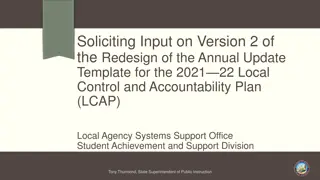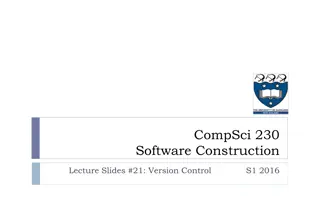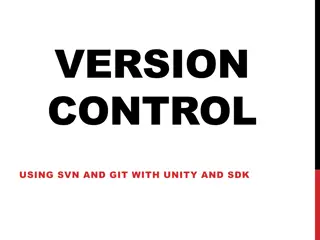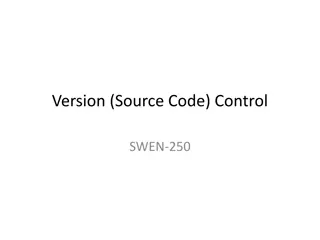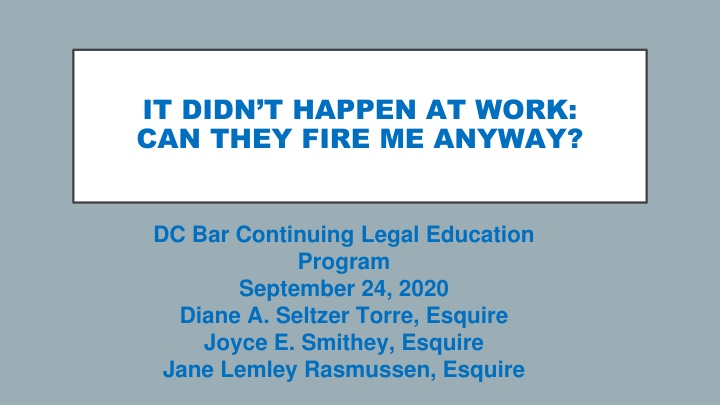
Employee Rights on Political Activities and Discrimination in the Workplace
This content discusses employee rights relating to political activities and the prevention of discrimination in the workplace. It covers various topics such as engaging in social justice activism, political affiliation protection under the DC Human Rights Act, and legal cases highlighting discrimination issues based on political actions. Employee rights, including protection from retaliation and discriminatory practices, are crucial aspects highlighted in the content.
Download Presentation

Please find below an Image/Link to download the presentation.
The content on the website is provided AS IS for your information and personal use only. It may not be sold, licensed, or shared on other websites without obtaining consent from the author. If you encounter any issues during the download, it is possible that the publisher has removed the file from their server.
You are allowed to download the files provided on this website for personal or commercial use, subject to the condition that they are used lawfully. All files are the property of their respective owners.
The content on the website is provided AS IS for your information and personal use only. It may not be sold, licensed, or shared on other websites without obtaining consent from the author.
E N D
Presentation Transcript
IT DIDNT HAPPEN AT WORK: CAN THEY FIRE ME ANYWAY? DC Bar Continuing Legal Education Program September 24, 2020 Diane A. Seltzer Torre, Esquire Joyce E. Smithey, Esquire Jane Lemley Rasmussen, Esquire
OUTSIDE ACTIVITIES Political Activity Attending Protests and Engaging in Social Justice Activism Engaging in Activities That Could Lead to COVID-19 Exposure Positions on LGBTQIA+ Rights Romantic Relationships Reproductive Decisions Smoking and Tobacco Use Gun Ownership Alcohol and Alcoholism Lawful Consumable Products Statutes Marijuana Use Outside Employment Arrests and Convictions (Ban the Box) DC BAR | September 24, 2020 2
Many states have statutes that prohibit employers from retaliating against employees for engaging in political activities or for the employee s political opinions. POLITICAL ACTIVITY The DC Human Rights Act states, It shall be an unlawful discriminatory practice to do any of the following acts, wholly or partially for a discriminatory reason based upon the actual or perceived political affiliation of any individual. DC Code 2-1402.11(a) 3 DC BAR | September 24, 2020
POLITICAL ACTIVITY The DC Human Rights Act defines political affiliation as the state of belonging to or endorsing any political party. DC Code 2-1402.02(25) In Blogett v. University Club, 930 A.2d 210 (2007), the plaintiff claimed he was expelled from a private social club because he was affiliated with the National Alliance. Even though the court allowed that Blodgett may have been dismissed based on his affiliation with the National Alliance, it observed that a plaintiff cannot satisfy the statute's definition of political affiliation by asserting discrimination for political reasons or politics generally, and it found no evidence that Blodgett's group was a political party under any ordinary sense and with the meaning commonly attributed to that term.Thus, he was not protected by the law. 4 DC BAR | September 24, 2020
POLITICAL ACTIVITY In McCaskill v. Gaulladet Univ., 36 F.Supp.3d 145 (D.D.C. 2014), the plaintiff alleged that the university discriminated against her because of her actions namely, that she signed a petition to place Maryland's Proposition 6 a state constitutional amendment that would have banned same-sex marriage on the ballot. not allege it was based on her membership in any group, let alone any political party. She made no attempg to distinguish her signing a petition from the general politicking discussed in Blodgett. The Court thus dismissed her claim of discrimination based on political affiliation. She did 5 DC BAR | September 24, 2020
POLITICAL ACTIVITY AND COMMENTING ON SOCIAL JUSTICE ISSUES Termination of Hogan administration official Arthur Mac Love IV, who was serving as Deputy Director of the Governor s Office of Community Initiatives, after he published a torrent of controversial Facebook posts, offensive memes, updates, and photographs to his personal Facebook page in support of the 17- year-old Kenosha, Wisconsin shooter and critical of the escalating racial unrest in Kenosha. . 6 DC BAR | September 24, 2020
POLITICAL ACTIVITY Citizens United v. Federal Election Commission, 558 U.S 310 (2010). Corporations have a First Amendment Right to make independent political expenditures. Freed corporations to communicate political opinions to the public and, arguably, their employees. Citizens United arguably created a hole through which employers may be able to legally require their employees to participate in their political activities. Example: conditioning employment upon attending a political rally. No case law where this has been challenged. August 2019 Trump rally; employees would get unpaid day off if they didn t attend the rally. DC BAR | September 24, 2020 7
Employees who participate in Black Lives Matter activities. Employees who support the Defund the Police initiatives. Employees who were fired or who resigned after attending the white supremacist Unite the Right rally in Charlottesville in 2017. Efforts to identify employees based on social media posts showing them at this (or similar) rallies or campaign events. ATTENDING PROTESTS AND ENGAGING IN SOCIAL JUSTICE ACTIVISM DC BAR | September 24, 2020 8
MASS GATHERINGS AND COVID-19 What if the employee attends a mass gathering and is potentially exposed to COVID-19? 9 DC BAR | September 24, 2020
POSITIONS ON LGBTQIA+ RIGHTS Does sexual orientation or gender identity have to be recognized as a protected class in order for there to be protection for those who do or do not support LGBTQIA+ rights? Bostock v. Clayton County, GA, 590 v. ___ (2020). The Supreme Court held, based on the plain language of the statute ( because of sex ) that discrimination on the basis of a person s sexual orientation necessarily constitutes discriminating on the basis of sex. For example, if an employer fires one employee because the he is male and attracted to men, but does not similarly fire a female employee who is materially similar in all other respects because she is attracted to men, the decision clearly takes into account each employee s sex, and sex is not a permissible consideration in employment decisions. The EEOC interprets and enforces Title VII's prohibition of sex discrimination as forbidding any employment discrimination based on gender identity or sexual orientation. These protections apply regardless of any contrary state or local laws. 10 DC BAR | September 24, 2020
TITLE VII: RETALIATION Prohibits retaliation for engaging in protected activity: Attending a rally regarding unlawful discrimination in the workplace. Attending a rally regarding LGBTQIA+ rights. 11 DC BAR | September 24, 2020
InterVarsity Christian Fellowship USA matter: On October 6, 2016, Time magazine reported that InterVarsity (a large evangelical organization on college campuses nationwide) told its 1300 staff members that they will be fired if they personally support gay marriage or otherwise disagree with its positions on sexuality. This was to start November 11, 2016. On October 7, 2016, InterVarsity s press room stated that the Time magazine report was not accurate. The press release further stated, We employees to reflect the ministry s theological beliefs, as would be true for any church, synagogue, mosque, or religious organization. We recognize employees who disagree, or whose beliefs have changed over time, will leave employment because we have reiterated our beliefs. InterVarsity had just concluded a four year process that resulted in its reiteration of its position on biblical sexuality. POSITIONS ON LGBTQIA+ RIGHTS: LOOKING BACK have always expected 12 DC BAR | September 24, 2020
Ruthie Robertson, a Mormon who supports equal rights for gay, lesbian and transgender individuals, claims she was terminated from her job as an adjunct professor with Brigham Young University- Idaho (which was also her alma mater) after her Facebook post supporting the LGBT community. The Facebook post said: This is my official announcement and declaration that I believe heterosexuality and homosexuality are both natural and neither is sinful, Robertson wrote in her lengthy post on June 5, in honor of Pride month. I will never support the phrase love the sinner, hate the sin because that sin is part of who that person is. Homosexuality and transgenderism are not sins; if God made us, and those are part of who we are then God created that as well. Robertson was not friends with any of her students on Facebook, and made sure to keep the post private. But she said one of her Facebook friends reported the post to her department head and another sent an email to the school s president. POSITIONS ON LGBTQIA+ RIGHTS: LOOKING BACK 13 DC BAR | September 24, 2020
ROMANTIC RELATIONSHIPS IN THE WORKPLACE Potential Issues: Perceived favoritism by other employees Decreased respect for one another Poor employee morale Potential conflicts of interest Sexual harassment or discrimination claims by other other employees (i.e., hostile work environment) Sexual harassment or discrimination claims by the subordinate DC BAR | September 24, 2020 14
EMPLOYER BEST PRACTICES Establish a no-fraternization policy with clearly defined consequences for violations, including termination of one or both employees Decide which relationships to prohibit Establish procedures to minimize potential issues Re-assign an employee to a different department to avoid reporting problems Have subordinate report to a different supervisor Require employees disclose any intra-office romance Love Contract is not best practice. DC BAR | September 24, 2020 15
SAMPLE NO FRATERNIZATION POLICY In the interest of maintaining an unbiased work environment, the organization has adopted a No Fraternization Policy. Romantic and dating relationships between employees especially those in a supervisor- subordinate relationship are discouraged and should be avoided. Romantic relationships in the workplace may be destructive to effective employment relations and could create conflicts of interest and morale problems. Should a romantic or dating relationship begin to occur, both employees need to communicate the relationship to the Senior Vice President of Operations, who will make every attempt to treat the information confidentially and may consider a transfer, reassignment, or other appropriate action. Dating or sexual relationships between supervisors and their direct reports are prohibited. Therefore, it is a violation of company policy for a supervisor to engage in dating or a sexual relationship with an employee whom he/she supervises or over whom he/she is in a position to exercise authority in any way. 16 DC BAR | September 24, 2020
ROMANTIC RELATIONSHIPS Burke v. Inter-Con Sec. Systems, Inc., 926 F. Supp. 2d 352 (D.D.C. Mar. 4, 2013): Plaintiff (Burke), a male security guard for defendant, was in a consensual relationship with female coworker Tonya Jackson. Jackson subsequently alleged that Burke was verbally abusive and had physically threatened her. They got into a heated argument at work, resulting in employer placing Burke on unpaid suspension. Employer s investigation found the threats were not corroborated and both employees were disciplined and relocated to different sites. Burke complained that his new schedule interfered with classes he was taking. 17 DC BAR | September 24, 2020
ROMANTIC RELATIONSHIPS Burke v. Inter-Con Sec. Systems, Inc., 926 F. Supp. 2d 352 (D.D.C. Mar. 4, 2013) (continued) Burke no-showed more than once and was terminated. He subsequently filed suit alleging gender discrimination. In granting summary judgment in favor of the employer, court concluded, among other things, that Burke s lateral transfer following the incident with Jackson was neither a materially adverse employment action, nor pretext for gender discrimination. 18 DC BAR | September 24, 2020
ROMANTIC RELATIONSHIPS Broderick v. Ruder, 685 F. Supp. 1269 (D.D.C. May 13, 1988): Female Securities & Exchange Comm n employee sued for sexual harassment and retaliation. Court entered judgment in favor of employee, finding she had been subject to a hostile work environment created by supervisors who gave preferential treatment to women who submitted to their sexual advances. Employee had complained to management about several matters, including a number of intra-office affairs occurring and the employment benefits allegedly doled out to the women who participated in them. DC BAR | September 24, 2020 19
ROMANTIC RELATIONSHIPS Broderick v. Ruder, 685 F. Supp. 1269 (D.D.C. May 13, 1988) (continued) Court held that: [C]onsensual sexual relations, in exchange for tangible employment benefits, while possibly not creating a cause of action for the recipient of such sexual advances who does not find them unwelcome, do, and in this case did, create and contribute to a sexually hostile working environment. DC BAR | September 24, 2020 20
DC The D.C. Code states that discrimination based on sex includes discrimination based on pregnancy, childbirth, related medical conditions, breastfeeding, or reproductive health decisions. D.C. Code 2- 1401.05(a) Reproductive health decisions includes a decision by an employee, an employee s dependent, or an employee s spouse related the the use or intended use of a particular drug, device, or medical service, including the use or intended use of contraception or fertility control or the planned or intended initiation or termination of a pregnancy. D.C. Code 2- 1401.05(c) REPRODUCTIVE HEALTH DECISIONS 21 DC BAR | September 24, 2020
Maryland [T]he state may not interfere with the decision of a woman pregnancy: (1) Before the fetus is viable; or (2) At any time during pregnancy, if [t]he termination procedure is necessary to preserve the life or health of the woman; or . . . [t]he fetus is affected by a genetic defect or serious deformity or abnormality. Md. Code Ann., Health-Gen. 20-209 to terminate a REPRODUCTIVE HEALTH DECISIONS the woman s 22 DC BAR | September 24, 2020
Virginia Virginia Fairness Act in Spring of 2020, which bans discrimination based on pregnancy status and requires employers reasonable accommodations for pregnant workers. VA Code 2.2-3904. applies to employers with 5 or more employees. There is no law that prohibits terminations based on use of contraception or or termination of a pregnancy. passed the Pregnant Worker s REPRODUCTIVE HEALTH DECISIONS to provide The law 23 DC BAR | September 24, 2020
SMOKING No federal protection or prohibition Half of states and District of Columbia prohibit discrimination against use of tobacco or other lawful products outside working time Connecticut, Indiana, Kentucky, Louisiana, Maine, Minnesota, Mississippi, Missouri, Montana, Nevada, New Hampshire, New Jersey, New Mexico, New York, North Carolina, Oklahoma, Oregon, Rhode Island, South Carolina, South Dakota, Tennessee, West Virginia, Wisconsin, and Wyoming Virginia law prohibits public employers from prohibiting its employees from using tobacco products while off the job. 24 DC BAR | September 24, 2020
SMOKING Intersection with wellness programs AARP v. EEOC - August 2017, D.D.C. directs EEOC to reconsider regulations concerning employee sponsored wellness programs Regulations allowed incentives of up to 30% (and up to 50% for tobacco-related incentives) of the cost of health coverage for employees participating in health-contingent wellness programs Question of voluntariness 25 DC BAR | September 24, 2020
District of Columbia v Heller, 554 U.S. 570 (2008) 5 4 decision holding that the Second Amendment protects an individual's right to possess a firearm unconnected with service in a militia for traditionally lawful purposes, such as self-defense within the home, and that Washington, D.C.'s handgun ban and requirement that lawfully-owned rifles and shotguns be kept "unloaded and disassembled or bound by a trigger lock" violated this guarantee Tension between right to carry and employer s property rights GUN OWNERSHIP 26 DC BAR | September 24, 2020
No federal law regulating legal possession of firearms, generally, or possession during work time or employer s property Twenty states with parking lot laws that permit employees to bring firearms to worksite so long as secured within their vehicle DC employers may ban MD employers may ban VA employers may ban GUN OWNERSHIP 27 DC BAR | September 24, 2020
Bootstrapping parking lot laws into wrongful termination actions: In states that protect employees right to store their guns in their cars, the employee may be able to sue its employer for terminating them because they stored their gun in their car. GUN OWNERSHIP 28 DC BAR | September 24, 2020
ALCOHOL & ALCOHOLISM Most importantly, can I lawfully choose to hire only individuals who drink alcohol? 29 DC BAR | September 24, 2020
LAWFUL CONSUMABLE PRODUCTS AND LAWFUL ACTIVITY STATUTES Be mindful of statutes that protect employees who consume lawful products (such as alcohol and tobacco), or who engage in lawful activities, on personal time. Examples: Colo. Rev. Stat. 24-34-402.5; Minn. St. 181.938; Mo. Rev. Stat. 290.145; Mont. Code Ann. 39-2- 313 and 314; Nev. Rev. Stat. Ann. 613.333; N.Y. Labor Code 201-d; N.C. Gen. Stat. 95-28.2; Wis. Stat. Ann. 111.321 30 DC BAR | September 24, 2020
Alcoholism is not a per se disability, and the court must undertake a case-by- case analysis to determine whether a plaintiff qualifies as having a disability. Williams v. Savage, 538 F.Supp.2d 34, 40 (D.D.C. 2008) ALCOHOL & ALCOHOLISM 31 DC BAR | September 24, 2020
Can employers take adverse action for misconduct related to alcoholism occurring outside the workplace? Yes, but discipline must be related to the conduct or performance - and NOT to the underlying alcoholism ALCOHOL & ALCOHOLISM 32 DC BAR | September 24, 2020
MARIJUANA USE DC, Maryland and Virginia have all decriminalized medical marijuana in some form Laws in each state differ some states have enacted anti-discrimination laws concerning marijuana use, although most permit adverse action for consumption or impairment at work. Maryland: Employers are not prohibited from discriminating on the basis of marijuana use or participation in the state s medical marijuana card program. D.C.: Temporary law in place protecting local government employees against discrimination based on their use of medical marijuana (recently extended due to COVID-19 while the Council work on permanent bill). Remains illegal under the federal Controlled Substances Act Employers can generally still terminate employees for failing drug tests DC BAR | September 24, 2020 33
MARIJUANA USE: DC Qualifying patient may possess/use medical marijuana and paraphernalia for treatment of a wide range of medical conditions if he/she: Has a Rx from a doctor; and Registers w/ Mayor per Medical Marijuana Program D.C. CODE 7-1671.02 Certain recreational use permitted for residents age of 21+ D.C. CODE 48-904.01 DC BAR | September 24, 2020 34
MARIJUANA USE: D.C. DC Prohibition of Pre-Employment Marijuana Testing Act of 2015 Prohibits employers from testing prospective employees prior to conditional offer After conditional offer, employer can require testing compliance with drug-free workplace policy No legal challenges to date to employer s adverse action against employee using medical marijuana D.C. CODE 32-93 DC BAR | September 24, 2020 35
MARIJUANA USE: MARYLAND Maryland s Medical Marijuana Law Allows patients to receive medical marijuana recommendation from physician and to obtain state-issued Maryland Medical Marijuana Card Protects patients against criminal prosecution and civil fines Silent on employer s ability to enforce drug-free workplace policy, and does not contain anti-discrimination provision. MD. CODE, HEALTH GENERAL, 13-3301 ET SEQ. DC BAR | September 24, 2020 36
MARIJUANA USE: VIRGINIA Virginia doctors now have state authority to recommend medical cannabis as a treatment for any diagnosed condition or disease. A 2018 bill, known as #LetDoctorsDecide, expanded Virginia law, which allowed only cannabis oil as a treatment for intractable epilepsy. See Va. Code 18.2-251.1(2019) (cancer/glaucoma) The law includes an affirmative defense for possession of medical cannabis to all patients that can be raised only during prosecution. Va. Code 18.2-250.1(A) & (C) (2019) DC BAR | September 24, 2020 37
MARIJUANA USE: VIRGINIA 2019 LEGISLATION Nurse practitioners and physician assistants who register with the Board of Pharmacy may now issue written certification for medical cannabis for patients. Pharmaceutical Processors can dispense capsules, lozenges, lollipops, suppositories, as well as oil. Va. Code 54.1-3442.5. et seq. Registered agents for those unable to pick up or receive delivery of their medical cannabis (such as patients in hospice). Va. Code 18.2-250.1(C) (2019) Virginia is the fourth state to allow school health care providers to administer medical cannabis to registered patients just as they would any other medication. Va. Code 18.2- 251.1:1 (2019). DC BAR | September 24, 2020 38
MARIJUANA USE: VIRGINIA EMPLOYEE BEWARE Virginia law provides limited employee protection for using cannabis. Hemp-based CBD oil is lawful under both federal and state law. May get a false positive on a drug test due to THC; like poppy seeds. DC BAR | September 24, 2020 39
MARIJUANA USE: VIRGINIA Decriminalization and Job Applicants Beginning July 1, 2020, possession of 1 ounce or less of marijuana is no longer a crime; punishable by a $25 fine. Employers may not require job applicants to disclose arrest, charge, or conviction for simple possession of marijuana. No other employment related protections for Virginia employees who use marijuana. Employers in Virginia (and DC and MD) may continue to have zero tolerance policies for marijuana use. DC BAR | September 24, 2020 40
INTERACTION WITH FEDERAL LAW Americans with Disabilities Act No obligation to accommodate individual where employment decision is based on use of a substance that is illegal under the Controlled Substances Act\ Marijuana is still a Schedule 1 drug under the CSA, so marijuana users registered through a state s medical marijuana program excluded from ADA protection Current drug use is not protected under the ADA 41 DC BAR | September 24, 2020
EMPLOYER BEST PRACTICES Address lawful medical and recreational marijuana use only to the extent such use affects performance of job duties Continue drug testing, including pre-employment (after conditional offer where necessary), random, and/or reasonable suspicion tests Should any workplace conduct that violates federal law be grounds for termination? DC BAR | September 24, 2020 42
EMPLOYER BEST PRACTICES Establish a drug-free workplace policy that: Limits marijuana use to non-working hours outside the workplace Applies to other types of prescription medicines that impair performance Aligns with your current drug testing procedures States consequences for refusing to take a drug test, testing positive, or being impaired on the job DC BAR | September 24, 2020 43
MARIJUANA USE Coles v. Harris Teeter, LLC, 217 F. Supp. 3d 185 (D.D.C. 2016): Employee fired by grocery store employer after testing positive for marijuana on random drug test. Explained to employer that he had a valid medical marijuana prescription for treatment of glaucoma, but he was terminated for violating store s substance abuse policy. Employee sued store for common law wrongful termination and disability discrimination under the DC Human Rights Act. Court granted store s motion to dismiss the wrongful discharge claim, holding that there was no clear mandate of public policy requiring DC employers to accommodate legal marijuana use. However 44 DC BAR | September 24, 2020
MARIJUANA USE Plaintiff could proceed with his discrimination claim, as he had sufficiently alleged his firing was due to his disability. In so holding, court pointed to allegations that: Store s substance abuse policy was more than a bit hazy about whether it will consider the legal use of marijuana to constitute a violation ; and Store did not fire at least one other employee who failed multiple drug tests for cocaine, but who did not have a disability. 45 DC BAR | September 24, 2020
MARIJUANA USE Rodriguez v. DC Office of Emp. App., 145 A.3d 1005 (D.C. 2016): Plaintiff, a former park ranger for the DC Dep t of Parks & Recreation, was terminated after failing random drug test. Ranger claimed his urine tested positive for marijuana because he had inhaled second-hand marijuana smoke, and also because his other prescription and OTC meds caused a false positive. 46 DC BAR | September 24, 2020
MARIJUANA USE Hearing officer had previously concluded that there was no justification for the presence of [m]arijuana in the employee s system, and cause existed for his termination. Decision was previously upheld twice, but DC Court of Appeals reversed, holding that ranger s termination violated CBA because District had failed to provide union with timely notice of the term decision. Failure to provide notice was not harmless error, therefore, the court need not reach ranger s challenges to the drug test. 47 DC BAR | September 24, 2020
MARIJUANA USE Johnson v. So Others Might Eat, Inc., 53 A.3d 323 (D.C. 2012): Employee s claim for unemployment benefits was denied when hearing officer concluded he had been terminated for gross misconduct. DC Court of Appeals reversed. Employee, a security guard, was tested for drugs after a bag of marijuana was found on employer s premises. Test was positive for marijuana, which resulted in employee s termination for violating employer s drug use policy. In reversing, court found there was no nexus between the claimant s off-duty marijuana use and his employment, which was a required showing to establish misconduct. 48 DC BAR | September 24, 2020
Pros: Employee can earn more money Employee feels that primary employer is not needlessly restricting and interfering with employee s off-duty life Employee morale is improved Employee may learn skills at second job that are transferable to primary job Can help defeat misclassification claims OUTSIDE EMPLOYMENT 49 DC BAR | September 24, 2020
was $19.63 was $19.63 was $19.63 Cons: Employee may be tired from demands of second job Employee may not be available for overtime or to work late because of schedule for second job Employee may be doing work for one job while on the clock for the other job Employee may inadvertently reveal confidential information about the other employer Employee may face a conflict of interest at some point OUTSIDE EMPLOYMENT 50 DC BAR | September 24, 2020


